London bosses, led by those in the banking sector, are now stipulating that their staff must come back into the office more regularly, with some, including JP Morgan and Goldman Sachs, taking a particularly tough ‘most day’ stance.
Senior MPs and London mayor Sadiq Khan have also pressed for London workers to return to their desks in the capital, suggesting bosses should consider removing the London weighting of employees’ salaries who fail to do so. The strength of this call is compounded by recent news reports; for example, CNBC claimed there is a ‘rental recession’ in London, with empty commercial office space hitting a 30-year high.
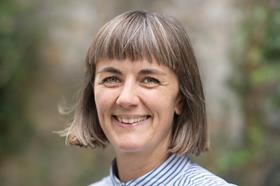
While Bankside has been no means immune to the impact of post-pandemic working habits – people continue to work flexibly with three days a week in the office a typical pattern that reflects global trends - when it comes to commercial investment, the area seems to be bucking a decline with developer confidence remaining high.
Most of planned property investment in the area is for new office space, with commercial development so considerable that it is anticipated to increase the Bankside workforce 50% by 2030. Large scale projects, including Bankside Yards, that were previously planned to offer housing, are even switching some phases to office use.
The explanation for this is alluded to in a line from Shakespeare’s As You Like It, which was recently showing at Bankside’s Globe Theatre; “Your gentleness shall force more than your force move us to gentleness,”. Bankside is exerting a cultural pull, rather than a legislative push when it comes to encouraging workers back to their offices and attracting commercial investment.
The vibrant and eclectic Bankside has attracted people to be entertained and experience culture for over 1,000 years. The area has experienced significant transformation in the past 25, thanks, in part, to the arrival of Shakespeare’s Globe in 1997 and Tate Modern in 2000. Today, Tate Modern is the area’s local gallery, The Globe is its local theatre and the cultural melting pot that is Borough Market is its local market. ‘Super landmarks’ such as these, and their influence on the local creative ecosystem, simply cannot be replicated or experienced in the local areas of those working from home.
These globally renowned landmarks have had a ripple effect on cultural capital at a street and community level. We have played into this with placemaking projects and artwork that have become layered over time, building a critical mass, to the point that the neighbourhood is now known for its street art and creative buzz. It has also directed and informed our ‘London’s Other Side’ brand identity.
Bankside plays host to thriving creative industries – from architects and artists to media professionals – and its cultural vibrancy is a key attractor. It has helped drive the diverse, mixed economy we have today. Law firm, Boodle Hatfield was one of Bankside’s ‘early adopters’ – choosing the ‘vibrant business and cultural district’ as a dynamic base from which to continue the growth and development of the firm. It moved here in 2014 and more professional services are following its lead.
Mark Fisher, partner at commercial property expert Union Street Partners, which specialises in the Bankside and South Bank area, says it has always been clear that the unique character of Bankside is a key economic driver. “Bankside’s cultural capital is a key investment attractor,” he says. ”When it comes to commercial real estate, tenants are looking for a point of difference for their office spaces and this has never been more important post-Covid-19, as bosses look to incentivise a move away from homeworking.
“Locating in culturally vibrant parts of London, such as Bankside, is a powerful tool employers can use to entice workers back. It means employee benefits are right on their doorstep, and this is hugely valuable at a time when businesses are increasingly having to ‘earn the commute’ from their staff.”
Cultural and historic richness is supported by the improved transport links needed for a supportive business infrastructure. Bankside’s cultural attractions need to accommodate increased footfall and benefit from London Bridge, Blackfriars and Waterloo stations nearby. This is massively important in terms of the area’s overall attractiveness to businesses. The intertwining of culture and infrastructure demonstrates the virtuous cycle at play when it comes to cultural richness and business, and it can work the other way too. Investment in commercial properties can, in turn, contribute to the further development and preservation of an area’s cultural heritage.
Investor and developer Landsec is developing “The Liberty of Southwark” on Southwark Street. Archaeologically significant Roman artefacts have been uncovered on the site and Landsec are now working with MOLA (Museum of London Archaeology) and the London Borough of Southwark to help preserve the finds.
Landsec head of workplace Oliver Knight says: “Culture is crucial to shaping the places where we live, work and play. Understanding, preserving and showcasing the heritage of a site plays a key role in connecting people to places, in turn helping destinations to thrive in the long term. At The Liberty of Southwark, recent archaeological discoveries highlight the historical significance of the area and will also guide us in shaping its future. Establishing a space where the finds will be displayed will create a new cultural destination in Southwark for the community, visitors and workers to share and enjoy.
“Culture and heritage are what make a place special and enhance its character. The rich culture of Bankside is an important part of why it is an attractive area for businesses and for investment – it’s a pull for people and talent. We’re delivering a 1m sq ft green office cluster across Bankside, which will look to blend seamlessly into its rich cultural scene. At Timber Square on Lavington Street, we’ll open up the site and provide new public realm, retail and leisure extending the low line from Borough Market.”
Nicole Gordon is chief executive of Better Bankside, Business Improvement District























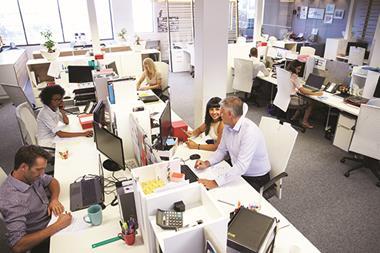
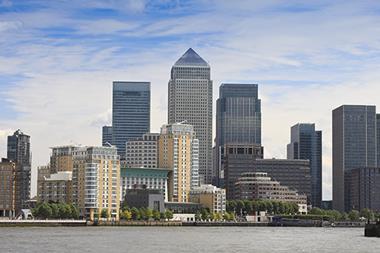
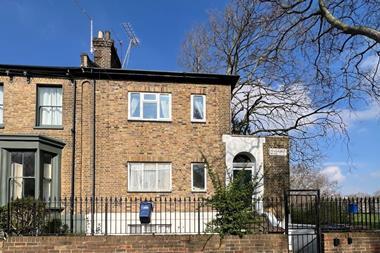
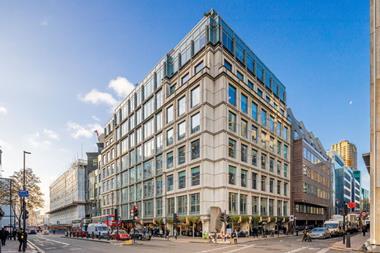

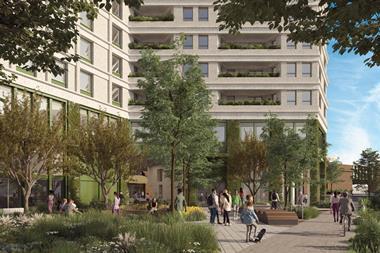
No comments yet